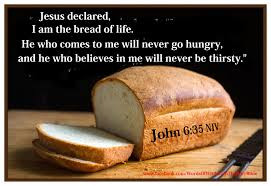
BY PROSPER TINGINI
We were told during our upbringing that upon death, our souls would go first to be “graded” at the gates of Heaven, where Simon Peter would be standing by the entrance. He would determine whether one enters the gate or not, depending on the goodness or sinfulness of one’s life on earth.
Before starting debate on the issue, let’s go straight to our scriptures to get to the source of this belief. Matthew 16:13-20 reads: Now when Jesus came into the district of Caesarea Philippi, he asked his disciples, “Who do people say that the Son of Man is?” And they said, “Some say John the Baptist, others say, Elijah, and others Jeremiah or one of the prophets”. Jesus asked them again, “But who do you say that I am?” Simon Peter replied, “You are the Christ, the Son of the living God”. And Jesus answered him, “Blessed are you, Simon Bar-Jonah! For flesh and blood has not revealed this to you, but my Father who is in heaven. And I tell you, you are Peter, and on this rock I will build my church and the gates of hell (Hades in Greek) shall not prevail against it. I will give you the keys of the kingdom of heaven, and whatever you bind on earth shall be bound in heaven, and whatever you loose on earth shall be loosed in heaven.”
Of all the disciples of Christ, only Simon Peter knew the real identity of Jesus. His knowledge came directly from the Heavenly Father, according to the words of Christ. Peter thus represented the truth. No wonder he was likened to the rock of the Christian faith. Knowing the truth about Christ makes Peter the rock upon which Christianity was built. He was the builder and solid foundation of the church. Christ is the patriarch as the torch bearer.
A big percentage of our Christianity subscribes to the notion that the Lord Jesus Christ himself is the rock upon which the church was built. Logically, this would make sense since the religion is based on his words and teachings. However, Christ gathered and directed other people, the disciples, to spread his words and to act on his behalf. These are the messengers, the builders and front runners of our Christian faith. Among the disciples, Peter had the most knowledge and the strongest faith in Christ. I stand solidly behind Christ and those who view Peter as the rock upon which our faith was built. This would in essence automatically ordain him to be the first “Pope” of the church. After Christ’s death, he led the other disciples and Christianity itself.
The conversion of Paul the apostle from Saul the persecutor of Christians somehow brought a new dimension to the matrix of the Christian faith. While Peter was assigned to spread the word among the children of Israel initially, and thereupon build the church, Paul was assigned to preach about Christ to the Gentiles but also including the Jews. The Gentiles were people of various other religions who were not bound by the law of the Almighty God. Among the Gentiles, Paul became the equivalent of the “rock upon which the church was built”.
Paul is also the pillar upon which all the other structures of the church stand. Paul’s teachings varied according to the religious inclination of his audience, as directed by Christ (Acts 9:11); “For he is a chosen instrument of mine to carry my name before the Gentiles and kings and the children of Israel”. A lot of Christians get it wrong or confused by the way Paul presented his teachings. Each of his sermons or letters were directed to a particular group of a religious sect and each carried different messages for each of the targeted groups. To the Gentiles, he taught as if he was one of them, not bound by the law, and to the Jews he taught them as a Jew, as if one bound by the law. This is the reason we may find some contradictions in the scriptures here and there within some of his teachings.
Peter was later on directed by the Holy Spirit to preach the message of Christ to the Gentiles and to everybody without discriminating. To that effect the Holy Spirit spoke to him “What God has made clean, do not call common (Acts 11:9).” This was after the death of Christ, as the sacrificial lamb for human sins. In Acts 11:18, the disciples celebrated the inclusion of Gentiles into Christianity by glorifying God, saying, “To the Gentiles also God has granted repentance that leads to life”. Peter and Paul were of different rocks in the way they executed their assigned missions.
- Chamisa under fire over US$120K donation
- Mavhunga puts DeMbare into Chibuku quarterfinals
- Pension funds bet on Cabora Bassa oilfields
- Councils defy govt fire tender directive
Keep Reading
While both their teachings centred on Jesus Christ there was a difference of approach of which Peter remarked to other Christians (2 Peter 3:16-17) about some of Paul’s teachings; “There are some things in them that are hard to understand, which the ignorant and unstable twist to their own destruction, as they do the other scriptures. You therefore, beloved, knowing this beforehand, take care that you are not carried away with the error of lawless people and lose your own stability”. He was making the reference to some of Paul’s teachings which are rather complicated and difficult to comprehend. His teachings seem to suggest to people that we should not live by the law, thus “losing our stability”.
Peter was given the keys of the kingdom of heaven; meaning that he was given the true knowledge of Christ and of the Way. Unfortunately some scripture readers have given a literal meaning to the words of Christ to Peter. Understandably, this gave rise to the impression that Peter will have actual possession of the keys of heaven. This would then mean that he would act like a security guard manning the gates of heaven to ensure that only those eligible gain entry. I also grew up being taught of this scenario, that upon death we would first encounter Peter standing and directing people-traffic by the gate.
Jesus’s words had a colloquial meaning. He meant that because of Peter’s knowledge about the truth, his teachings would open for us the gates of heaven. What this means in reality is that in the absence of Christ in person, Peter’s teachings should guide all Christianity and take precedence above all others, except for the teachings of Christ himself.
Most Christian churches of today very often subscribe mostly to the teachings of Paul ahead of those of Peter. It’s caused by the fact that the words and letters of Paul constitute almost half of all New Testament scriptures. His teachings are now the basis of most of our Christian doctrines ahead of those of Peter’s. Jesus Christ makes it clear that whatever Peter taught, or gave a ruling on, should then bind all of Christianity, even though his works and teachings are fewer in number than those of Paul. He holds the key.
Prosper Tingini is the Scribe of God Missionary Assembly. Contact 0771 260 195 or email: [email protected]











